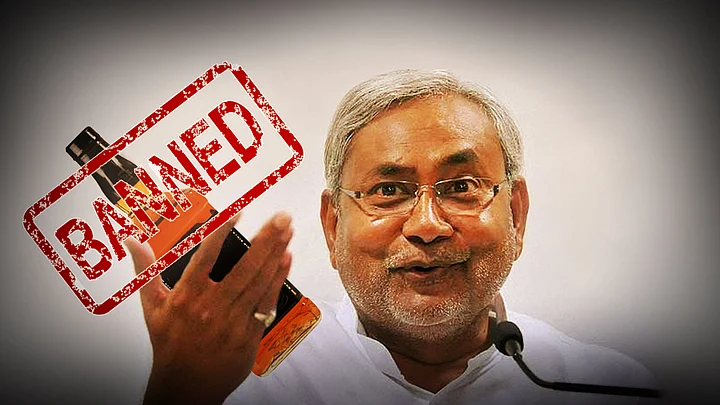My mother told me not to drink. It didn’t work. An increasing number of state governments in India though, are trying the same strategy. Gujarat, of course, is famous for the liquor prohibition law and its (lack of) effectiveness. Anyone who has been to the state will tell you, it’s pretty easy to get a drink in Gujarat.
Gujarat isn’t alone. Manipur and Nagaland also have long-standing and ineffective bans on alcohol. Recently, Kerala has begun a phased ban on alcohol and earlier this month Nitish Kumar imposed a total ban on liquor in Bihar.
Why do governments keep banning liquor despite the very questionable success of prohibition in the past?
A Social Evil and a Constitutional Goal
Nitish Kumar’s reasoning for banning alcohol is fairly simple. It was something he promised women voters before the election. For this crucial vote bank, crime and public safety are important issues. Alcoholism, largely a problem for men in rural and semi-urban areas, takes its toll on a family’s economy and women are the ones who bear the brunt.
The problem isn’t a new one. Local or country liquor like tadi and mahua have been around for ages. The Constitution, in deference to Gandhi’s principled and puritanical, opposition to alcohol included its prohibition in the Directive Principles of State Policy.
Article 47: The State shall endeavour to bring about prohibition of the consumption except for medicinal purposes of intoxicating drinks and of drugs which are injurious to health.
Unlike Fundamental Rights, Directive Principles of State Policy (DPSP) are not enforceable in a court of law. They are supposed to act as guidelines when legislatures frame laws. In practice, the government of the day, based on either political exigencies or ideological zeal, begin to frame laws and policies around Directive Principles. The ban on beef, for example, is included in the DPSP.
Prohibition’s Dismal Record
As things stand now, both law and religion haven’t had much luck with getting people onto the wagon. In Muslim countries, where the injunction against drinking is often the strongest, there has been a steady rise in alcohol sales and consumption. According to a survey by Euromonitor, a research firm based in London, alcohol consumption rose by 25 percent in West Asia and Africa between 2005 and 2010.
Governments have had even less success. From 1920 to 1933, the United States banned alcohol and organised crime got a deep foothold in American society thanks to the huge profits they made by bootlegging liquor. From Luckyn Luciano to Al Capone and many others, the mafia owed much of its success to the Prohibition.
In India, we haven’t fared much better.
In Andhra Pradesh, the then Chief Minister NT Rama Rao introduced a total ban on liquor in 1994, after protests against alcohol by women’s groups gained momentum. The law was reversed just three years later by Chandrababu Naidu. Why? Because smuggling from other states reached an all-time high, and the ban was, not to put too fine a point on it, ineffective.
Mizoram, under pressure from Christian groups had banned alcohol in 1997. In 2014, the ban was reversed. The widespread sale of spurious liquor was more of a danger than alcohol itself.
In Gujarat too, “hooch tragedies” have claimed lives. In 2009, 136 people died after drinking bootlegged booze.
The move towards temperance is not a new one. But if Bihar manages to make a success of it, it will certainly be an exception that defies history.
(At The Quint, we question everything. Play an active role in shaping our journalism by becoming a member today.)
